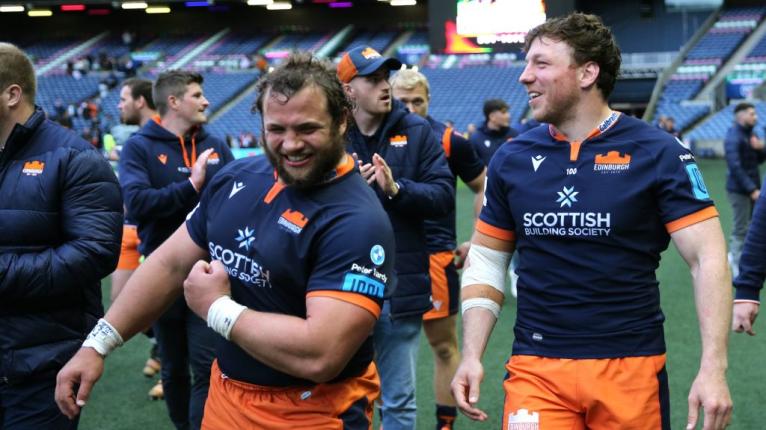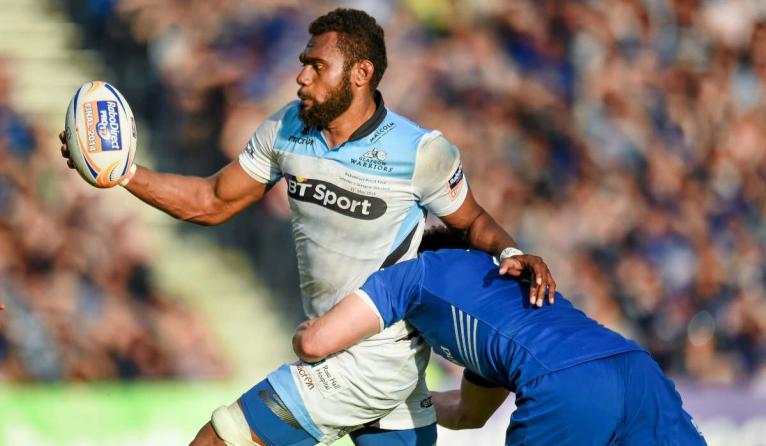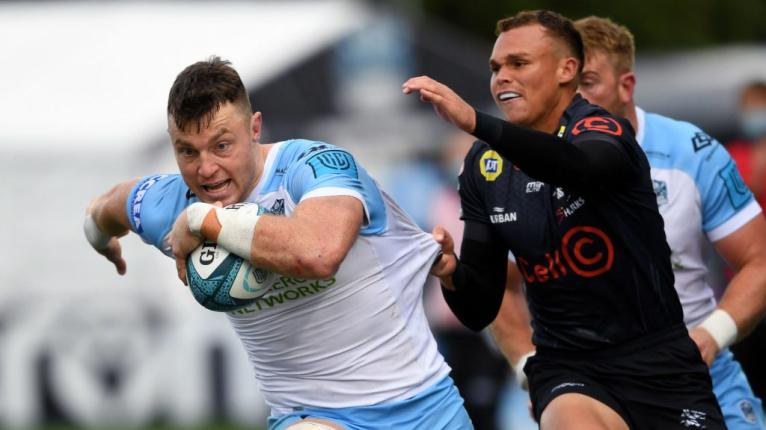Of all the problems and all the bickering and all the mismanagement which have dogged Scottish rugby over the years, straining to find space for talented players has never been at the top of the list.
In the here and now, it seems an odd thing to moan about; evidence, surely, the development pathways are working as they should. Or more pointedly, if Scotland has so much talent, why does it fail to register all but the occasional ripple in international waters? Both assertions are valid. The player clog, and how best to harness it, is the next great challenge the union must conquer.
Scottish rugby spins on a delicate and dynamic axis. To maintain its equilibrium requires serious foresight and the strategic nous of Hannibal Barka. Here’s the rub: the pro-teams, Edinburgh and Glasgow Warriors, are the only domestic vehicle for developing Test-ready players. But they must be successful in their own right, else why would anyone invest their financial and emotional currency in them? It follows that these teams must be overwhelmingly Scottish-qualified, with a sprinkling of carefully recruited foreign talent.
So, you want to keep your top players at home, under your management, but allow sufficient churn to blood the next crop. You want to foster fierce competition for places without stifling those emerging from the youth ranks. You want to nail your recruitment so only the most influential non-Scots are signed. You need to look years ahead so that, for example, when a promising academy tight-head is ready for senior action, opportunities will be at hand and a sound mentor at his shoulder.
Scottish players won’t want to hear this, but the appeal for them to Premiership clubs is getting less and less.
Scottish Rugby does a pretty good job of performing this almighty juggling act, but issues are inevitable for as long as it has only two professional teams. A grand total of 46 matchday spots are up for grabs on any given weekend and the upshot is an awful lot of good rugby players, playing very little top-level rugby. In Scotland, you can be an injury away from a Champions Cup match – otherwise you’re the captain of Team Bin Juice.
Too many sound players are languishing on the periphery right now. George Horne could do with moving somewhere to become a first-choice scrum-half. Thomas Gordon was superb last season but has fallen into the long shadow cast by Rory Darge, who himself got stuck in the Edinburgh back-row logjam before his shift west. On that front, Mike Blair must find a way of keeping Luke Crosbie, Jamie Ritchie, Hamish Watson, Nick Haining, Ben Muncaster, Connor Boyle, Kwagga van Niekerk, Bill Mata, Mesu Kunavula and, pretty soon, Rudi Brown, sated with game time.
Glasgow are letting Grant Stewart and Hamish Bain go because they are stacked at hooker and lock. Edinburgh have dispensed with Nathan Chamberlain, in part a victim of Blair Kinghorn’s sterling transition to fly-half. Stafford McDowall, Charlie Shiel and Jack Blain have seen little action this term. All are good enough to be regulars at URC level, but with no team to realise that potential.

This is compounded by the tightening of belts in England and of regulations in France. If you’re a Stuart Hogg, Jonny Gray or Finn Russell, your prospects are largely unaffected. But if you belong to the increasingly constricted middle tier, who are neither English- nor French-qualified, and who make up the vast majority of the current market, you are as well embarking on a quest to find Lord Lucan as chasing a decent contract. The list of free agents this summer, most with plenty to offer, would bridge the Clyde. Some are being forced to consider early retirement.
“Scottish players won’t want to hear this, but the appeal for them to Premiership clubs is getting less and less,” says Jan McGinity, Scottish Rugby’s former head of sports operations who has led recruitment at Leicester and Worcester and worked as a prominent player agent.
“They have to be released for international windows. There is always a pressure for players, if they’re not involved with the club, to go up to train with Scotland even though they’re not really meant to. You know you’re going to be without them for the autumn Tests, the Six Nations.
“Look at someone like Dan Biggar, who is on £650,000 a year, he played about 10 games for Northampton last season – £65,000 a pop is pretty expensive.”
This, combined with the falling salary cap in England and the waning interest in mid-level foreign players in France, has inadvertently armed Scottish Rugby with new financial clout. They can afford to keep many of their top dogs at home, rather than being resigned to losing them for far heftier wage packets.
Glasgow got two phenomena in Leone Nakarawa and Niko Matawalu. Nakarawa was signed for a pittance and his final contract at Scotstoun was said to be worth only £80,000 a year before Racing 92 added a zero to it
Watson, Ritchie, Zander Fagerson, Darcy Graham, Pierre Schoeman and Ali Price have signed new deals in the past year. Edinburgh can offer more money to Sam Skinner than Exeter Chiefs – a risible notion a few seasons back – while Huw Jones is returning to Glasgow, a move that will do Cole Forbes, who has impressed early in his Warriors career, few favours. Josh McKay, a serious operator, is already at Glasgow and fellow New Zealander Wes Goosen will be an Edinburgh man next season, a pulse-quickening addition from the Hurricanes.
Scottish rugby folk have long lamented the influx of signings from abroad, fearing the path for young Scots will be choked. This is where the recruitment supremos really earn their crust. Perhaps nowhere else in elite rugby are these decisions so vital. If a Scottish club is signing from overseas, they need to net a game-changer. Or they need someone who, through his personality, experience and leadership, can have a transformational effect on those around him.
Glasgow got two phenomena in Leone Nakarawa and Niko Matawalu. Nakarawa was signed for a pittance and his final contract at Scotstoun was said to be worth only £80,000 a year before Racing 92 added a zero to it. Mata has been immense for Edinburgh and rebuffed interest from France and Ulster because he has been so well looked after. You can run the gamut from Jack Dempsey and Emiliano Boffelli this season, to Josh Strauss and Netani Talei, DTH van der Merwe and WP Nel, all the way back to Brendan Laney and Todd Blackadder.
It is no shock that many of the stand-out imports have been number eights, a position where Scotland have long struggled to produce their own, home-grown colossus: Dempsey, Mata, Strauss, Talei, Cornell du Preez, Nasi Manu. Tongan behemoth Sione Vailanu is en route to Glasgow from Worcester shortly. South African and Pacific Islands brawn supplement the local crop.

But for every Nakarawa, there has been a Langilangi Haupeakui. For every Boffelli, a Sam Beard. For every Strauss, a Tevita Tameilau. Get it right, and the pro-teams will be regulars in the URC play-offs and European knockouts. Get it wrong, and you end up with wastage and blockage; it is hard to know which is worse.
Beneath the elite game, the semi-professional Super6, now entering its second full season, is beginning to serve its purpose. After being hopelessly battered in the Under-20 Six Nations, Scotland coach Kenny Murray admitted his players were physically unprepared to handle the intensity of their rivals. The Super6 is the prime tool to address this, but it is only recently that more of the U20s have been given welcome exposure to men’s rugby. They cannot be failed so desperately again.
For the first time ever, Scotland have been able to meet the market value players desire, so they don’t have to leave.
Finding slots for these players further up the ladder is difficult, though. Take Robbie McCallum, for example, one of the stand-out players of the Super6, a 21-year-old academy centre with national age-grade experience and a lot to like about his game. There was nothing for him at Edinburgh and Glasgow, while Premiership clubs were unwilling to take a punt based on semi-professional matches alone. McCallum is heading to the English Championship where he will combine a part-time playing deal with an office job in London.
“For the first time ever, Scotland have been able to meet the market value players desire, so they don’t have to leave,” says McGinity. “Those gaps in the pro-teams won’t appear if fewer players are moving on.
“Where there is a backlog of talent in positions which Scotland traditionally produce, that is going to be an issue further down the line.
“Does that mean we’ve got to look at – and I know this is an age-old argument in Scotland – a third pro-team? I don’t think the finances are there. If not for covid, in another season or two that could have been viable. It might be ten years down the line now. If you brought another franchise into the URC, I don’t know how big it can get, and I can’t see another franchise being welcome at the moment, because it would just dilute the problem. It’s a way off.

“They’re going to have to find a halfway house to allow some of that talent to get that exposure and that game time and come back. Does that mean better relationships with Premiership or Championship sides in England? There was a French connection with Stade Nicois but you had to sign for the season, you couldn’t be loaned back and forth.
“You’ve got to think outside the box. Gregor Townsend will have that question: where are these guys getting rugby? He will be concerned that even if you have guys coming to Scotland to qualify on residency, they are probably going to block the pathway.”
Edinburgh, next season, will have a budget of around £8m. I think Glasgow will be closer to £7.6m-£7.8m. You’ve actually got a significant number available to you, far higher than the English teams, which has never really been the case.
But amidst the complexity lies an exciting nugget. This season, Premiership clubs were allowed to use “plus-one” contracts, activating additional years on existing deals which did not count towards the new £5m salary cap. Some, particularly Bristol Bears, have had their fingers burnt as they cut costs and shed wages. Next term, those plus-ones are up, players are leaving, and a truer picture of a £5m cap will emerge. Both Edinburgh and Glasgow will have larger war chests than all of their foes south of the border and that is a seriously big deal.
“If you ranked where you could earn the most money, you’d go Japan first, France next, then in some instances URC teams, then the Premiership,” McGinity goes on.
“Edinburgh, next season, will have a budget of around £8m. I think Glasgow will be closer to £7.6m-£7.8m. You’ve actually got a significant number available to you, far higher than the English teams, which has never really been the case.”
Opportunity knocks, if not, perhaps, for the youngsters coming through the system. So what does Scottish Rugby do about it? Where is the best place for its money? The top-down approach, investing heavily in the elite game in the hope success inspires a nation, has not borne fruit. A third pro-team would be a loss-making exercise on the heels of a pandemic, and where should one be based? Would the Premiership welcome Scottish fingerprints on one of their top 13 teams, and would there be any merit in Scottish Rugby investing in a Championship league which the RFU have significantly defunded? That’s before we get to the women’s squad, who need and deserve full professional status with a World Cup looming. For those at the top, there are no easy solutions.



Comments
Join free and tell us what you really think!
Sign up for free